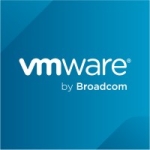What is most valuable?
The simplicity of the programs is the best part and the fact that there is no need to install clients on your hosts makes it unique compared to other orchestration tools.
How has it helped my organization?
We can now go to a customer and deploy all software in a few minutes instead of hours.
What needs improvement?
It's a young product so there is still room for improvement on the module side. There are about 150 modules at the moment but there are still many missing.
For how long have I used the solution?
For a couple of months
What was my experience with deployment of the solution?
Deployment is easy, it cannot be any easier.
What do I think about the stability of the solution?
The software is so small and well written that there are no stability issues. At the moment there is a new update every 2 months so if there is an issue with a bug it will be fixed in the next release.
What do I think about the scalability of the solution?
It scales from a few up to 1000's of servers so does it scale - YES!
How are customer service and technical support?
Customer Service: No idea. It's so simple and there is so much support on the internet that so far I have had no need to look for support.Technical Support: People at Ansible have been very nice to me so far even without a support contract. I get pointed to the help boards to get answers to my questions by their support staff.
Which solution did I use previously and why did I switch?
We use all kinds of solutions like puppet, chef, .... Why do I like Ansible more? Ansible is easier, it makes use of yaml, and templating is done with jinja2. With other solutions there is a steeper learning process. Ansible is so easy that it takes you only a few minutes to get going. Where other solutions are more for programmers, Ansible is made for system engineers without any need to program or script in any language derivatives. Ansible puts all the intelligence in the modules.
How was the initial setup?
Setup is easy. Every distro has packages available and if you have a weird distro that hasn't one, you can install it easily with python pip or download it from github.
What about the implementation team?
We installed it in-house. It is so simple for an IT person that with the online documentation that it should be easy to set you up in minutes.
What's my experience with pricing, setup cost, and licensing?
The product is free, at least if you make use of the command line version. There is also a graphical version that has some extra features in reporting, etc. Here the price depends on the number of clients you want to manage. For us the cost was the time it took to learn the product which was only a day or two.
Which other solutions did I evaluate?
Puppet, Saltstack, Chef
What other advice do I have?
If you are looking for something easy straight to the point for a non programmer this is what you need!!
Disclosure: My company does not have a business relationship with this vendor other than being a customer.

















